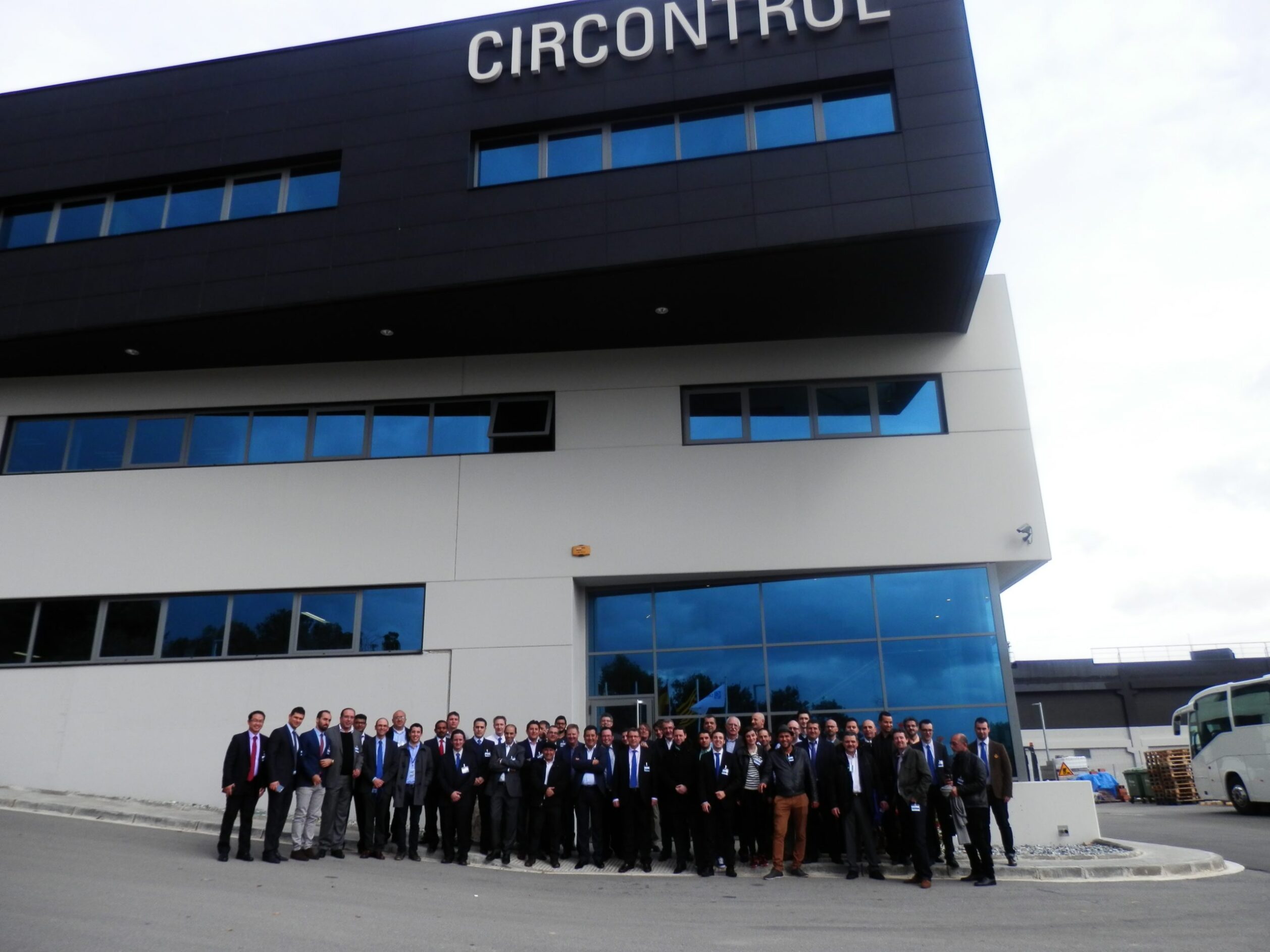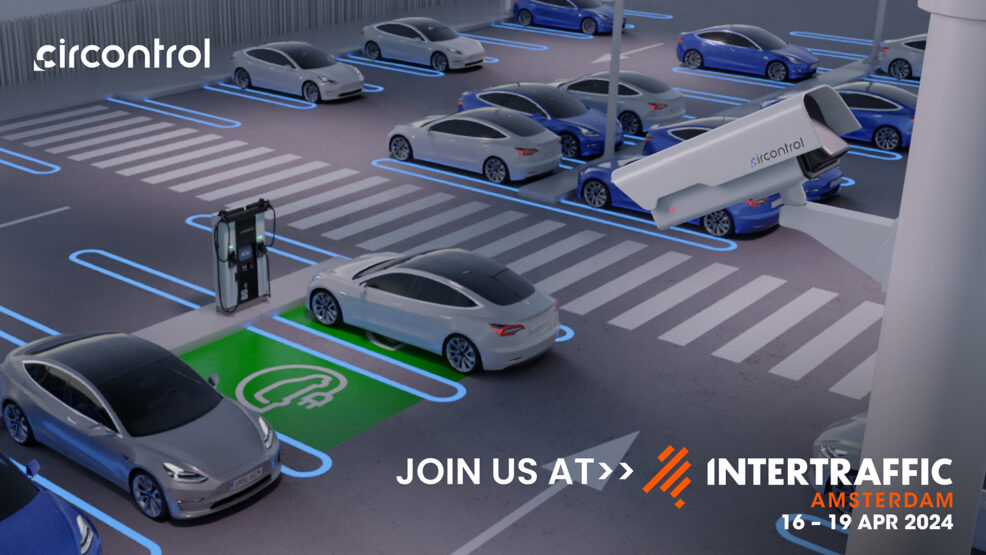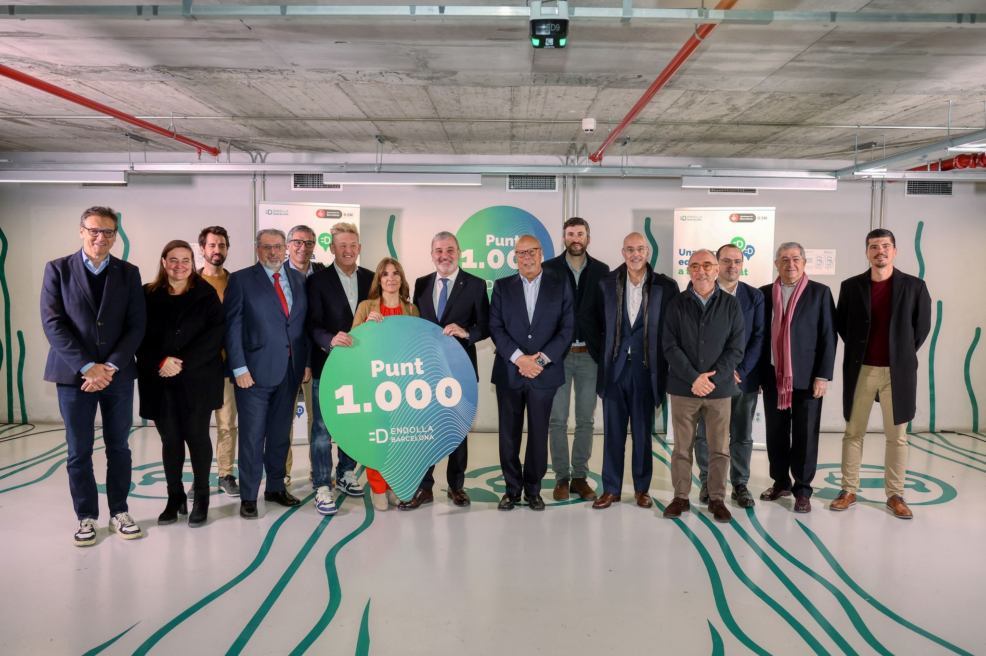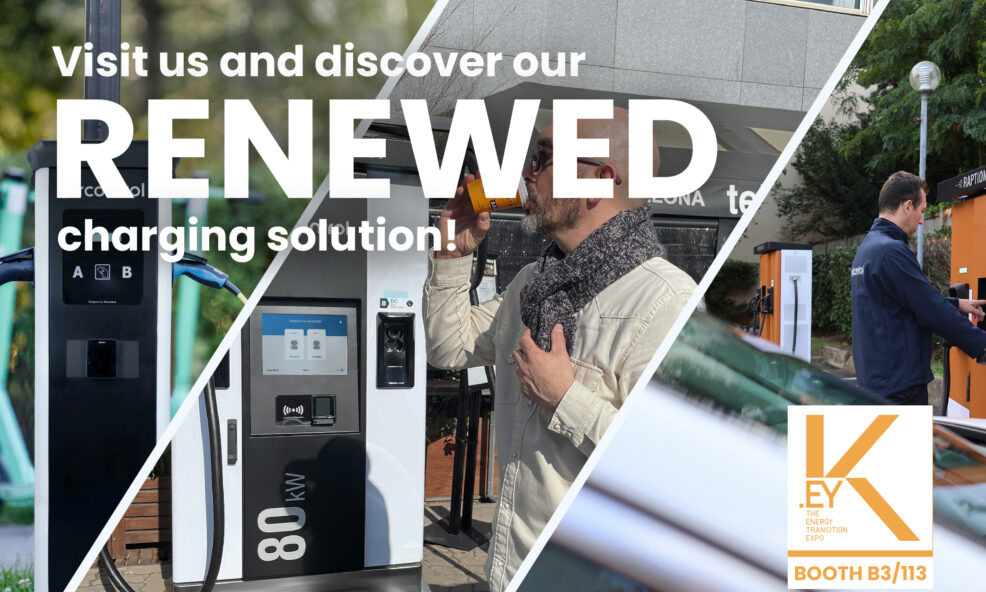Experts from 30 countries meet at the Circontrol headquarters in Viladecavalls to analyse the future of efficient car parking and the electric vehicle
45 experts from 30 countries around the world have met at Circontrol’s headquarters in Viladecavalls (Barcelona) to analyse the current situation and the future of efficient green car parks and electric vehicles and their influence as catalysts for improvements in mobility and efficiency in the city of the 21st century. During the conference, the second edition of the Circontrol awards for “Efficient Parking” were presented to 6 projects from around the world.
One of the challenges facing 21st-century society is to reduce traffic and pollution in big cities, where the greatest population growth is expected.
The dense, complicated traffic in large cities slows down social dynamism and has a negative impact on the quality of life.
A few years ago, the parking world expressed its desire to offer something more than ‘dark, unfriendly places where vehicles are left’. For this reason, car parks are increasingly being designed or remodelled as friendly, efficient spaces provided with cutting-edge services and technology (vehicle guidance, efficient LED-type lighting, air ventilation control etc.).
Another factor that will affect urban mobility in the future is the electric vehicle. Today there is still only a limited presence of electric vehicles in our country. This situation, however, will gradually change (as proof of this, all the major car manufacturers are already committed to developing their own electric vehicle and in some countries, such as Norway, more electric cars are sold than those with a combustion engine).
The concept of efficient mobility in a smart city is gaining ground. Efficient, sustainable parking, along with the advent of the electric vehicle, are undoubtedly key factors to achieving this aim.
The purpose of this conference is to analyse what car parks in the future will be like.
Are the cities’ car parks ready to receive the technology and changes in habits required by the smart city?
What technical adaptations must be made in order to optimise car parks, reduce energy consumption, streamline traffic, plug in electric vehicles, etc. to raise the quality of life in cities and reduce traffic and pollution?
Answers were found to all these questions and are summarised in the conclusions produced by the conference.
Conclusions, about future of efficient car parking and the electric vehicle, reached by mobility experts:
The following are the most important conclusions of the various talks given by opinion leaders from different countries:
1. The problem:
The conclusions of the UN Conference on Sustainable Development, held in Rio de Janeiro on 20-22 June 2012, state that:
– Half of the world’s population, 3,500 million people, lives in cities today. Big cities currently account for 80% of the planet’s energy consumption and 70% of its air pollution. The increase in the population is going to be much greater in big cities. In 2030, more than 60% of the world’s population will be concentrated in big cities (in 1990, this figure was 45%).
– Humanity has serious mobility, energy and pollution problems that will damage our quality of life.
35% of vehicles driving at rush hour are looking for somewhere to park, while there are empty spaces that are difficult to find simply by scanning.
2. The challenge:
Cities must become friendly, efficient spaces that are ‘intelligent’. Evolve toward the concept dubbed the ‘Smart City’.
From the mobility point of view, cities need to:
– Improve public transport infrastructures and flow systems.
– Incorporate dynamic systems to direct traffic towards the vehicle’s final destination, the car park.
– Achieve more efficient, greener parking areas, allowing users to find spaces quickly and safely, with as little energy consumption as possible.
– Promote energy-efficient vehicles, preferably 100% electrically powered ones, as far as possible.
3. The solutions:
Always from the point of view of mobility, there are technologies and systems that would help to achieve the challenges that have been set.
– Vehicle detection and guidance within car parks, both indoor and roadside, to achieve safer parking in the shortest possible time.
– Efficient car-park lighting using LEDs with intelligent dimming, by zone or floor, depending on the presence of people or vehicles.
– Automatic ventilation control by ramp of carbon monoxide (CO) in underground car parks.
– Smart charging points for electric vehicles, capable of interacting with the vehicle and the mains network depending on the energy availability. In the future, electric vehicles would allow ecologically generated energy (wind power, solar power, etc.) to be stored so that it can be used at times of peak demand.
Circontrol designs, manufactures and sells these solutions. Organising this conference has allowed us to determine the real needs are according to the experts.
First Edition of the Circontrol “Smart City” awards for outstanding projects
Award-winning projects and companies:

– Communications and promotional actions: ILYA Trade & Technology (Iran)
– Expert knowledge: IDEX Services (Saudi Arabia)
– Green parking solutions: CAITBA (Spain, Palma de Mallorca)
– The biggest project, Petronas Towers: SURIA KLCC (Malaysia, Kuala Lumpur)
– The most emblematic project, Wembley Park: APT SKIDATA (United Kingdom, London)
– LedPark lighting project: TRAFFIC TECH (Jordan, Amman)
Mr Ramon Comellas, chairman and founder of Circontrol, presented the awards.
About Circontrol
Circontrol was founded in 1997 and its headquarters are in Viladecavalls.Its parking division manufactures mobility optimisation systems (vehicle guidance, registration plate reading, etc.), energy-saving systems (intelligent lighting with LEDs, ramp-type ventilation depending on carbon monoxide levels) and smart electric-vehicle charging systems (residential, in car parks, roadside, ultra-quick charging, etc.).
It has an R+D+i department with software, hardware and electromechanical engineers. It invests more than 6% of its annual turnover in the research and development of new products, allowing it to be the most innovative company in its sector.
The company is one of the benchmarks and the global leader in its sector. 80% of its sales are in exterior markets, in 45 countries around the world, with projects as emblematic as the airports of Philadelphia (USA), Heathrow (GB), Toulouse (F); Mumbai (India), Quito (Ecuador), Mexico DF (MX) and Jeddah (Saudi Arabia); the Marina Bay Sand building (Singapore); Vika Atrium (Oslo, Norway); and the Jockey Plaza (Lima, Peru), Pavilion (Durban, South Africa), Petronas Towers (Kuala Lumpur, Malaysia) and Abdali Mall Amman (Jordan) shopping centres, and many more.
Circontrol technology now manages more than 250,000 efficient parking spaces and some 15,000 electric-vehicle charging points.
If you need more information, contact us.






